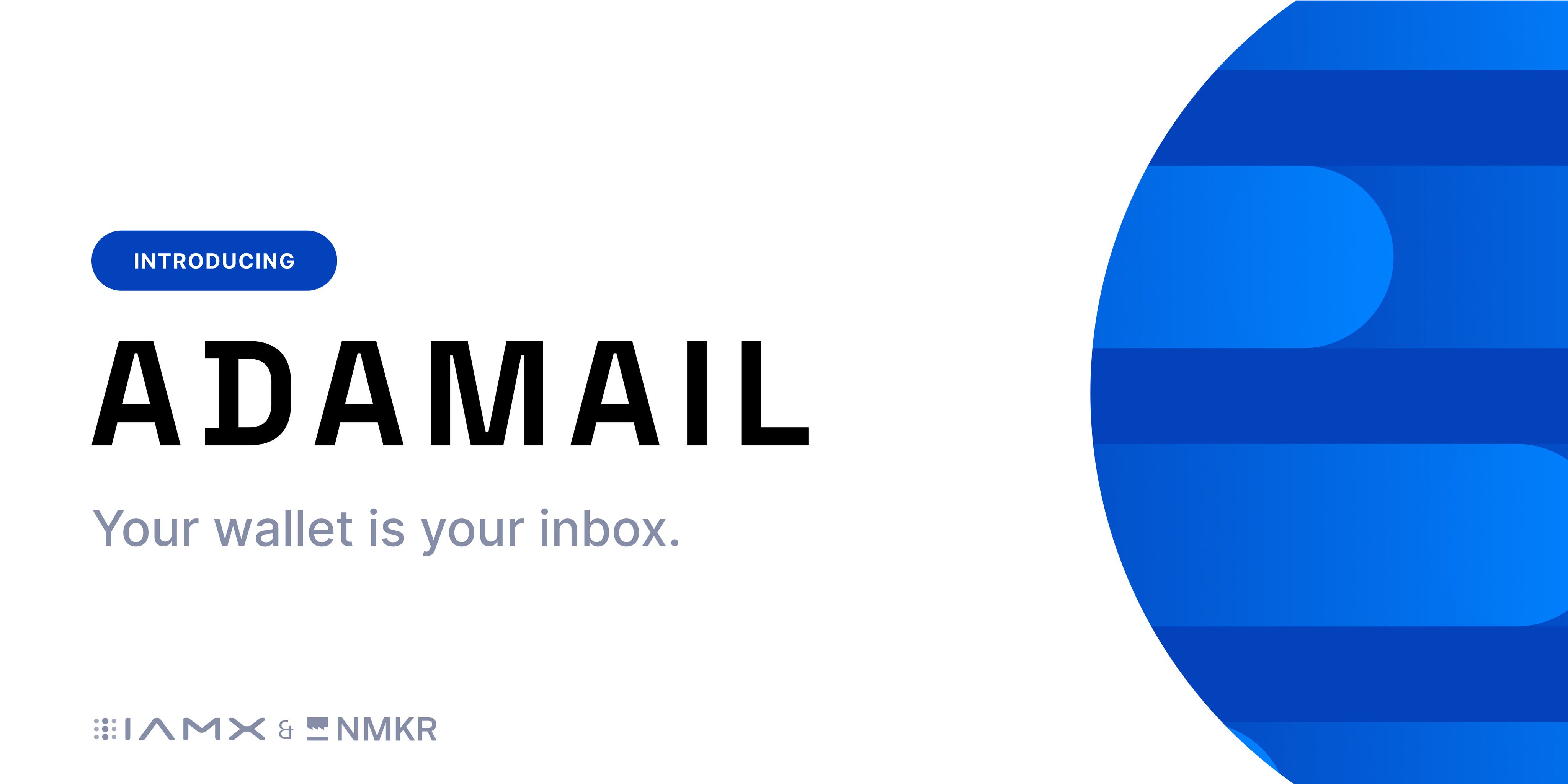ADAmail: Revolutionizing Digital Communication on Cardano Blockchain

Description
ADAmail, a pioneering project at the intersection of NFTs and email on the Cardano blockchain, has launched, introducing a new era of secure blockchain-based communication. This innovation, resulting from a collaboration between NMKR and IAMX, combines traditional email concepts with the potential of Web3, offering features like NFT-based access and three access tiers. ADAmail's impact extends beyond email, enabling stake pool operators to communicate with delegators and facilitating secure business transactions, marking a significant step towards merging traditional communication with blockchain technology.
Topics Covered:
✅ What is AdaMail?
✅ Tiered Access
✅ What will it bring to Cardano? Key Features...
ADAmail: Revolutionizing Digital Communication on Cardano Blockchain
Introduction
The world of blockchain and cryptocurrency is in constant evolution, challenging traditional systems with innovative solutions. On August 21st, at 6 pm UTC, a groundbreaking event unfolded within the Cardano ecosystem. ADAmail, a pioneering project at the intersection of NFTs and email, launched, fundamentally altering our perception and interaction with digital communication. This landmark event, facilitated by NMKR Pay, marked the birth of the first-ever web3 email protocol on the Cardano blockchain.
An Innovative Collaboration
ADAmail emerged from a partnership between NMKR, a frontrunner in NFT creation, minting, and trading infrastructure on Cardano, and IAMX, a trailblazing self-sovereign identity (SSI) solution provider operating on the same blockchain. Their collaboration aimed to fuse the well-established concept of email with the boundless potential of Web3, resulting in a tool that enables users to send emails to any Cardano wallet address and access their email accounts by connecting their wallets. As the launch date of August 28th has just passed, we can only wait and see how the integration of ADAmail into the Cardano ecosystem pans out, marking a significant stride in merging traditional communication methods with innovative blockchain technology.
Revealing the Features
ADAmail offers a dynamic array of features. Users can seamlessly send and receive emails to and from wallet addresses, ushering in a new era of secure blockchain-based communication. One standout feature is the integration with traditional email clients via SMTP, bridging the gap between Web2 and Web3 technologies.
ADAmail introduces a captivating concept of access through NFT ownership. Special email aliases can be acquired through specific NFT purchases, establishing a unique connection between digital identity and email communication. The inclusion of $handles and AdaDomains adds another layer of versatility, enhancing the overall user experience.
Three Access Tiers
ADAmail presents users with three distinct levels of access: Base, Gold, and Diamond Pass. The Base Pass provides one year of access to ADAmail, along with 500 MB of storage and a unique @adamail.me email address. The Gold Pass, in addition to a year of access, offers 750 MB of storage, an exclusive ada handle address @adamail.me for each handle in the user's wallet, and a personalized 4-letter alias adamail address.
For those seeking the pinnacle of features and benefits, The Diamond Pass opens the door to ADAmail for five years. Users are granted a generous 5GB of storage, a unique adamail address, exclusive ADAhandle adamail addresses, and the privilege of selecting a 4+ letter adamail alias and a 2-letter adamail alias of their choice.
ADAmail's Potential Impact and Use Cases
ADAmail transcends the boundaries of email communication. Its introduction unleashes a realm of possibilities and use cases within the Cardano blockchain. Stake pool operators can now directly communicate with their delegators via emails, enhancing transparency and trust within the Cardano ecosystem. NFT projects can effortlessly distribute newsletters to their holders, maintaining a direct connection with their community, and potentially fostering deeper engagement through exclusive content or updates. Even business transactions can be conducted via email, bolstered by the security of wallet-based signatures, providing a streamlined and secure method for organizations to negotiate and finalize agreements on the blockchain. These diverse use cases underscore ADAmail's potential to revolutionize not just communication but also collaboration and engagement within the Cardano network and the broader Web3 ecosystem.
All things considered...
As the Cardano community eagerly anticipates the launch of ADAmail's services on August 28th, it becomes clear that this innovation will reshape the email industry by seamlessly integrating it into Web3 on the Cardano blockchain. This integration of traditional email practices with the groundbreaking potential of blockchain technology represents an exciting step toward the convergence of the Web2 and Web3 realms. ADAmail's emergence signifies a new chapter in the blockchain journey, pushing the boundaries of what is achievable in the digital age.
ADAmail boasts a rich set of features that are designed to enhance your communication experience:
- Direct Emailing to Wallet Addresses: ADAmail enables direct email communication with wallet addresses, streamlining the process
- Wallet-Based Email Reception: Your wallet becomes a hub for more than just transactions; now you can receive direct emails
- Seamless Email Client Integration (SMTP)
- NFT-Based ADAmail Access: Access your email through NFTs, bridging the gap between NFTs and everyday communication
- Exclusive Email Aliases: Acquire unique email aliases by purchasing specific NFTs, adding a personal touch to your email address
- $handle Integration
Here are a few exciting features in the pipeline:
- Wallet-Signed Emails: Verify the authenticity of your emails by digitally signing them with your wallet.
DID-Email Integration: Seamlessly integrate your Decentralized Identifier (DID) with your email for a unified experience.
- Email-Based Transactions: ADAmail will facilitate transactions via email, simplifying the process of sending & receiving funds/assets.
- Mass Emailing to Policy ID Holders: Project owners can use ADAmail to send emails to all holders of a specific policy ID, making it a potent communication tool.
- Integration of decentralized signature solutions (e.g., DocuSign, Skribble, Adobe Sign).